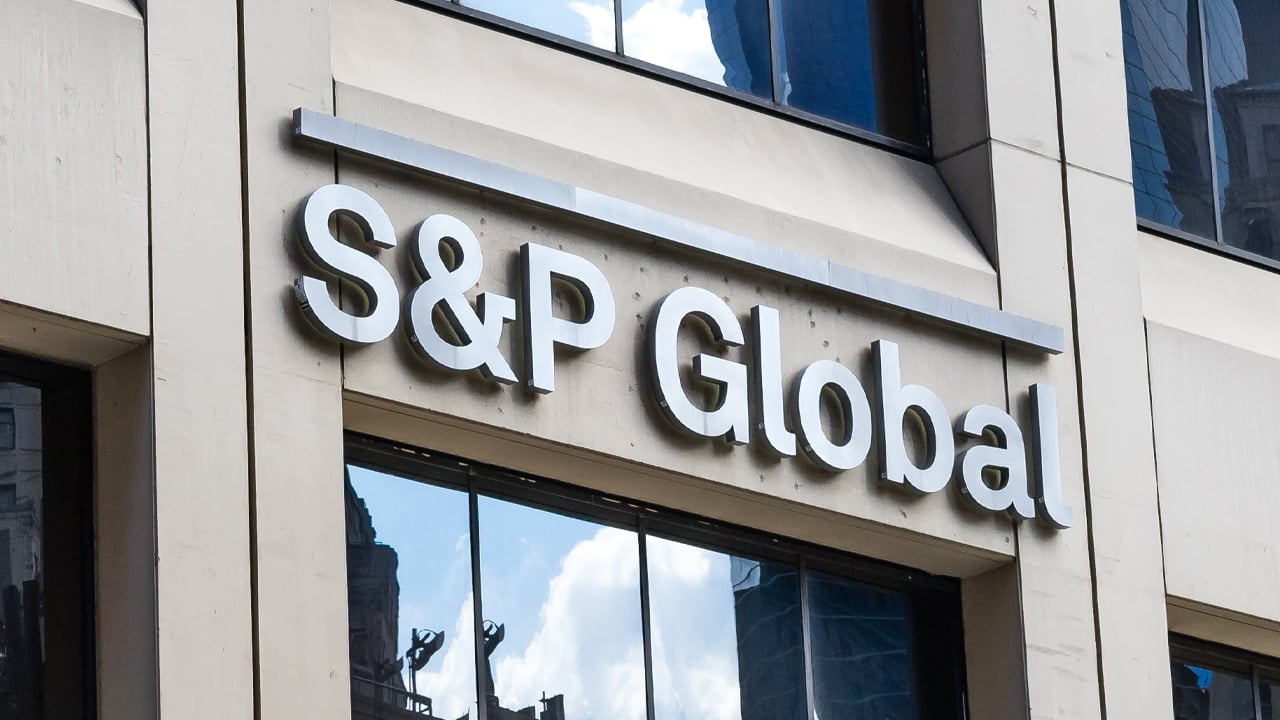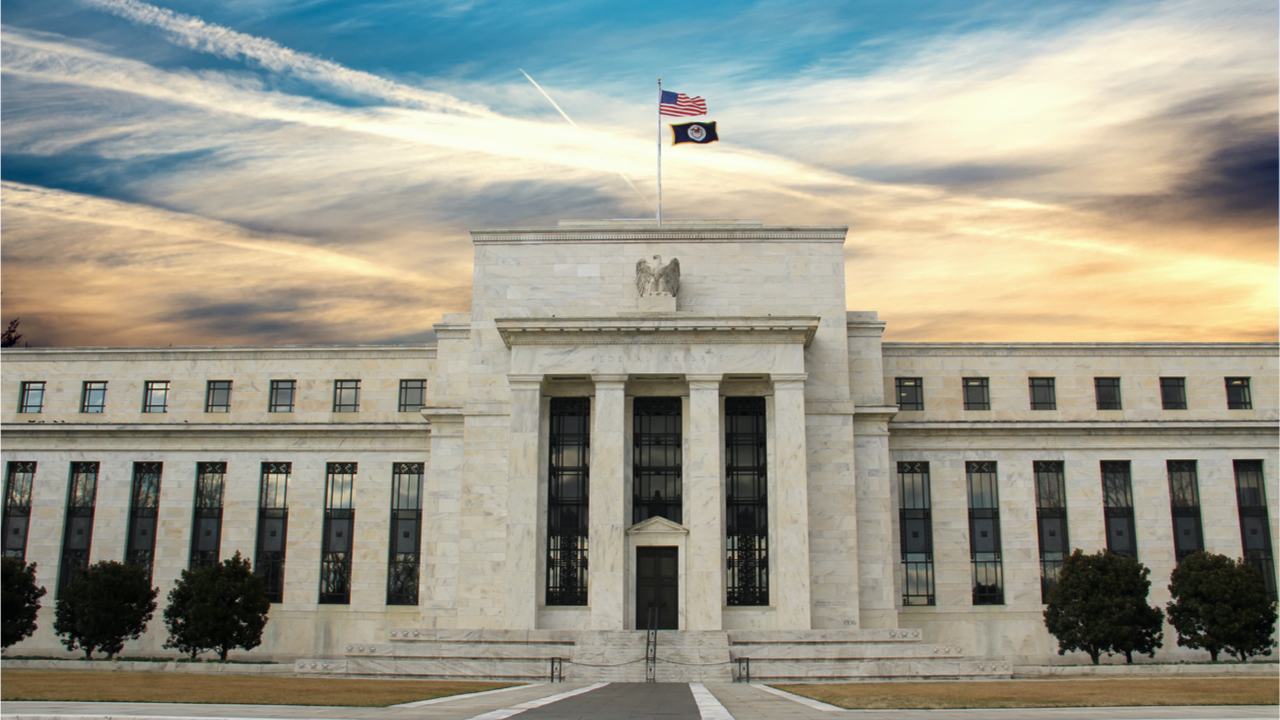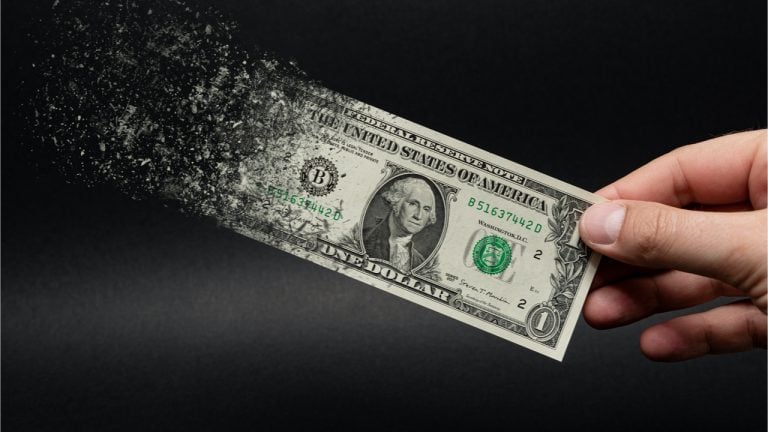 Americans are still concerned about dealing with inflation, as the cost of goods and services has continued to rise significantly in a short period of time. The Federal Reserve has published the latest Survey of Consumer Expectations report and U.S. households believe inflation will be up 5.3% one year from now. In addition to the […]
Americans are still concerned about dealing with inflation, as the cost of goods and services has continued to rise significantly in a short period of time. The Federal Reserve has published the latest Survey of Consumer Expectations report and U.S. households believe inflation will be up 5.3% one year from now. In addition to the […] All of the ‘Big Three’ credit agencies have said that El Salvador’s adoption of bitcoin could affect the country’s credit rating in a negative manner. After both Moody’s and Fitch Ratings published reports on the matter in El Salvador, S&P Global said that the bitcoin adoption has had “immediate negative implications for its credit rating.” […]
All of the ‘Big Three’ credit agencies have said that El Salvador’s adoption of bitcoin could affect the country’s credit rating in a negative manner. After both Moody’s and Fitch Ratings published reports on the matter in El Salvador, S&P Global said that the bitcoin adoption has had “immediate negative implications for its credit rating.” […] Americans are still very concerned about inflation as the latest Survey of Consumer Expectations (SCE) report from August indicates that U.S. consumers expect inflation to be 5.2% a year from now. The SCE response data hasn’t been this high since 2013, and it’s increased since the month prior, when U.S. residents expected 4.9% at the […]
Americans are still very concerned about inflation as the latest Survey of Consumer Expectations (SCE) report from August indicates that U.S. consumers expect inflation to be 5.2% a year from now. The SCE response data hasn’t been this high since 2013, and it’s increased since the month prior, when U.S. residents expected 4.9% at the […] Nicolas Maduro, president of Venezuela, stated the country could offer cryptocurrency-based loans to the agricultural sector, in addition to the traditional loans in several fiat currencies. He also stated that Venezuela has worked with petro and other cryptocurrencies for three years, pioneering the use of this kind of asset in Latam. Government Hints at Offering […]
Nicolas Maduro, president of Venezuela, stated the country could offer cryptocurrency-based loans to the agricultural sector, in addition to the traditional loans in several fiat currencies. He also stated that Venezuela has worked with petro and other cryptocurrencies for three years, pioneering the use of this kind of asset in Latam. Government Hints at Offering […] American inflation expectations have surged according to the results of the latest New York Federal Reserve Survey of Consumer Expectations. The presumed inflation rate tapped the highest point since 2013 and alongside the forecast of lower purchasing power, consumer debt and fears of a housing bubble in the U.S. are on the rise. New York […]
American inflation expectations have surged according to the results of the latest New York Federal Reserve Survey of Consumer Expectations. The presumed inflation rate tapped the highest point since 2013 and alongside the forecast of lower purchasing power, consumer debt and fears of a housing bubble in the U.S. are on the rise. New York […]
Cardholders will earn a percentage back in Bitcoin instead of airline miles or other cashback rewards
New York-based crypto loans and savings startup BlockFi launched its Bitcoin (BTC) rewards credit card today. The card is available to select approved customers on the United States waitlist.
Officially named BlockFi Rewards Visa Signature Credit Card, the card was first announced at the end of last year by Visa and BlockFi. Available to use anywhere Visa is accepted, the card allows its recipients to earn 1.5% back in Bitcoin instead of airline miles or other cashback rewards. Earned Bitcoin rewards will be transferred to cardholders’ BlockFi Interest Account.
Initial reports were saying that the card would have a $200 annual fee. But BlockFi took a U-turn on that decision in May, and the card launched with no annual fee. Cardholders are eligible to earn 2% in Bitcoin on annual expenses exceeding over $50,000. For example, if a customer spends $60,000 within a year, they will receive 2% of the $10,000 expenditure in BTC.
BlockFi’s credit card also offers familiar perks for the crypto ecosystem, such as trading bonuses and a referral program. The card is issued by Evolve Bank & Trust.
Terry Angelos, SVP and global head of fintech at Visa, noted that crypto rewards programs are a compelling way to welcome users to the crypto economy, and Visa is excited to see more examples of them.
Related: Institutional exchange launches crypto debit card
Almost everyone knows cryptocurrencies’ role in reshaping the financial space, added BlockFi Co-founder Flori Marquez: “This card will make it easier than ever for people to earn Bitcoin back while making day-to-day purchases.”
Visa is a known explorer of cryptocurrencies to broaden the adoption of digital currencies in general. As Cointelegraph analyzed in detail, Visa’s public affirmation of its positive stance toward cryptocurrency payment services reflects its drive to remain a leading player in the global payment network.

Boston Federal Reserve President Eric Rosengren notes that Tether could be a "disruptor" to short term credit markets.
While a presentation yesterday from Boston Federal Reserve President Eric Rosengren has some members of cryptoTwitter spooked at the idea of regulation and oversight, the central bank might simply be pondering the future.
In a presentation titled “Financial Stability,” Rosengren identified the stablecoin Tether by name as a part of three different “Financial Stability Challenges.” The challenges included risks to the housing market, the need for emergency lending facilities in times of crises, and “periodic disruptions to short-term credit markets,” where Tether was noted as one possible disruptor.
A follow-up slide noted that stablecoins are rapidly growing in marketcap, and now are roughly 20% the size of the total AUM for prime money market mutual funds:

“The reason we should be a bit concerned about stablecoin is that its growing very rapidly so there's exponential growth in stablecoin,” Rosengren said in an interview with Yahoo Finance. “[...] I do think we need to think more broadly about what could disrupt short term credit markets over time, and certainly stablecoins are one element.”
RELATED: Tether mints more coins to break $60 billion market cap
While Avanti Financial group CEO Caitlin Long rang the alarm bells that this could be a harbinger of the Federal Reserve laying the groundwork for a regulatory framework for stablecoins, Rosengren ultimately seemed to be taking a more tempered view.
3/ And here's part 2.
— Caitlin Long (@CaitlinLong_) June 25, 2021
Again, every single USD ultimately clears thru the Fed, which means the Fed has jurisdiction over USD #stablecoins. It matters that the Fed is saying this. Caveat emptor, folks. pic.twitter.com/iWkO7AoUpn
Rosengren noted that the rise of stablecoins aren’t a threat to credit markets on their own, but instead need to be evaluated in terms of the risks they might pose if they continue to grow as a segment of credit markets, and to what degree the Fed could backstop stablecoin-dominated markets:
“I do worry that the stablecoin market that is currently, pretty much unregulated as it grows and becomes a more important sector of our economy, that we need to take seriously what happens when people run from these type of instruments very quickly. And just like the money market funds caused a bad disruption in credit markets, I think a future financial stability problem could be occurring if we don't start thinking carefully about what happens to things like stablecoins next time we have a bad market difficulty.”
Rosengren also noted that “We actually had a stablecoin that ran into financial difficulties last week,” but declined to name which. Additionally, despite being asked twice by anchor Brian Cheung, Rosengren declined to say whether the Fed would step in to “backstop” Tether or other stablecoins if they ever posed a risk to broader credit markets.
He noted, however, that Tether’s backing and the backing of other stablecoins “basically looks like a portfolio of a prime money market fund but maybe riskier,” and as such liquidity injected into money markets in times of crisis would effectively backstop Tether as well.
Tether disclosed for the first time in March their full reserve balance sheet, and in February settled with the NYAG a suit that said they improperly reported the degree to which the stablecoin was backed by fiat.